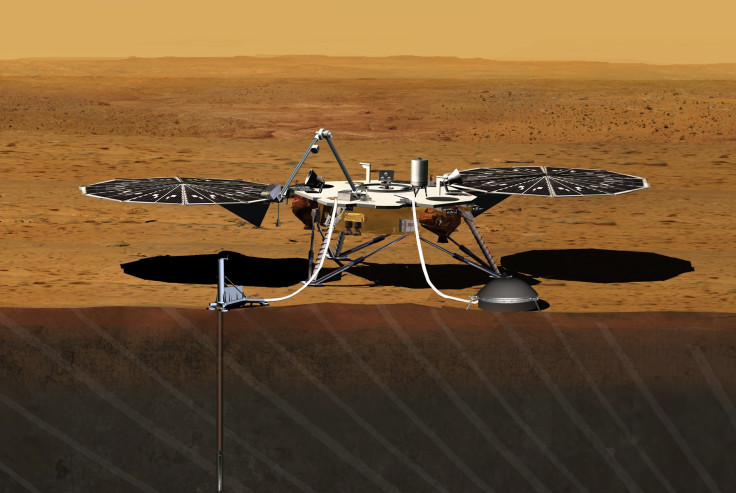NASA InSight Mars Mission Suspended From 2016, May Launch In 2018

NASA suspended the upcoming launch of a new Mars lander that would probe the interior of the red planet after the agency and its partners were unable to repair a leak in the spacecraft's seismometer. The Interior Exploration using Seismic Investigations Geodesy and Heat Transport (InSight) mission was scheduled to launch in March 2016, but the delay pushes a potential launch back to 2018. InSight faces more than favorable planetary alignments as funding issues could put the mission in jeopardy.
InSight is a new Mars lander that would use a probe to explore the interior of Mars and measure the seismic activity of the planet. Data collected by the spacecraft could lead to new insights regarding rocky planet formation and the internal structure of Mars. To do that, InSight was equipped with the Seismic Experiment for Interior Structure (SEIS) that would be used to measure ground movement within the planet. The sensors within SEIS are vacuum-sealed to protect the delicate instruments from the cold temperatures of Mars.
"We push the boundaries of space technology with our missions to enable science, but space exploration is unforgiving, and the bottom line is that we’re not ready to launch in the 2016 window," John Grunsfeld, associate administrator for NASA’s Science Mission Directorate, said in a statement.
InSight had a launch period between March 4 and March 30, 2016 due to favorable position of Earth to Mars. The next opportunity to potentially launch InSight would be in May 2016, Agence France Presse reported. The two years would be spent fixing the leak within SEIS, but the InSight mission has already spent $525 million of its $675 million budget. It's too early to determine the potential cost of repairing the leak.
The upcoming Mars 2020 rover was unaffected by the InSight setback. Future missions to Mars -- including a manned launch to the Red Planet in the 2030s and the European Space Agency's upcoming ExoMars orbiter in 2016 and rover in 2018 -- are on schedule, according to NASA.
© Copyright IBTimes 2024. All rights reserved.












